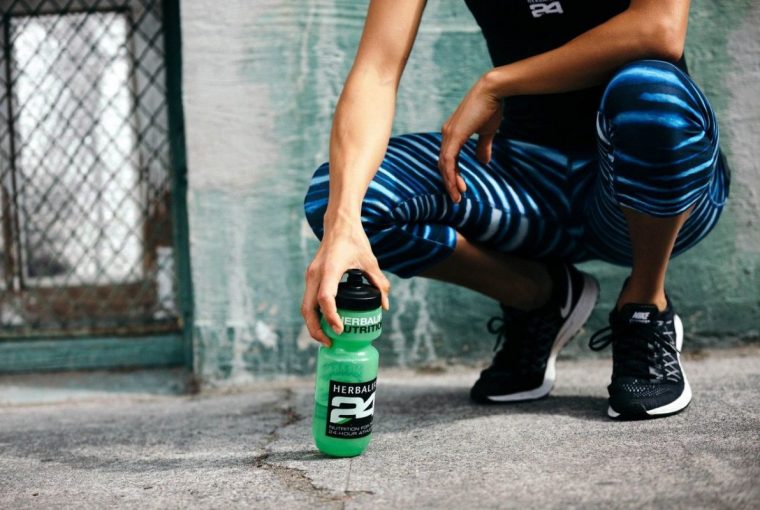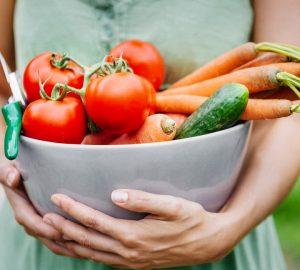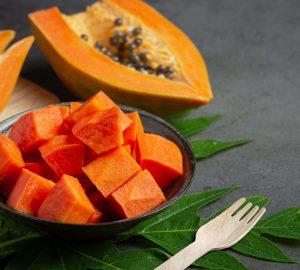Yes! While what you eat during a workout or race may not spark as much attention as pre- or post-workout nutrition, it has shown to have a huge impact on performance.
Reflect on these questions:
- Have you ever felt faint, light-headed or dizzy during a workout?
- Unable to focus or concentrate?
- Did you notice that your pace decreased during the second half of a race?
- Have you experienced a sudden loss of energy or “hitting the wall?”
If any of these symptoms resonate with you or if you want to take your performance to the next level, it is strongly recommended to add some of these nutrition tips to your training!
WHY should I eat?
Nutrition during training can have an impact in 3 ways:
- Improved energy
- Increased mental focus
- Improved physical comfort (not feeling hungry)
The best way to meet these goals is by staying hydrated and making sure our body has enough carbohydrates. Carbohydrates are the most efficient fuel source we use during exercise. When we workout, our body taps in to the storage form of carbohydrate known as glycogen. However, after about an hour of moderate to intense activity, our body runs out glycogen and we need to add some more carbohydrates! This is crucial if our goal is to maintain the same pace, intensity and focus throughout.
WHO needs to eat?
Whether you should eat or how much really depends on the duration and intensity of the session. As a general guideline, it is recommended to add carbohydrate during any moderate to high intensity activity longer than 60-90 minutes.
Here is a good way to summarize:
| Length of Exercise | Example | Fuel Needed |
| < 60 minutes | Steady run, strength exercise at the gym, yoga class | Water |
| 1-2.5 hours | Half Marathon | 30-60g carbohydrates per hour |
| > 2.5 hours | Marathon, Ultra-marathon | 60-90g carbohydrates per hour |
WHAT do I eat?
Once you know what you should aim for during training, the next step is to understand what this looks like and what works best for you. Training your gut to tolerate nutrition is just as important as training your muscles and lungs for a race. It is highly recommended to test foods and liquids as soon as possible during training so that you can have these same foods during race day. Just as you would not buy new runners for the race, you definitely do not want to try any new foods or liquids the day of!
Goals to aim for:
- Fluid: 5-10 oz of fluid every 20 minutes (or 2-4 cups) per hour
- Carbohydrate: every 15-20 minutes
While some people can tolerate food during exercise, most runners may find it easier to digest foods like gels, sports drinks, fruit purees and chews.
Examples of 30 g of carbohydrate:
- 500 ml Sports drink
- 3 pieces of gummies or chews
- 1 sports gel
- ~ 5 pieces dried mango
- ~ 2 pouches of baby food puree
What about electrolytes?
If you are exercising for more than 2 hours, are a heavy sweater, or if you are running in really hot conditions, an electrolyte supplement may be needed. Sodium is the main electrolyte lost in sweat. As sodium is a part of salt, the terms sometimes are used interchangeably.
One good way to tell if you are a salty sweater is if you notice white marks on your clothing or white crystals on your skin after working out. While it is unlikely that you are at risk of a sodium imbalance if you are exercising for less than 4 hours, having a bit of sodium (or salt) in the drink or foods you are consuming during exercise will help you stay hydrated.
Some easy ways to incorporate salt during a workout:
- Add about ¼ tsp of salt to 1 L of water
- Have 500 ml of a sports drink
- If able, snack on salty food during the race
Take home message:
- While it might seem strange to eat during a workout or race, nutrition during exercise will make a difference on energy levels, focus and overall performance!
- Practice makes perfect! Train your gut to start tolerating foods and liquids. Find what works best for you and have those foods on race day.
Lisa Podlecki is an Edmonton-based dietitian specializing in sports nutrition and mindful eating. She understands the importance of respecting the body, mindfulness and incorporating an all-foods-fit approach for optimal health.




